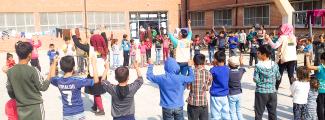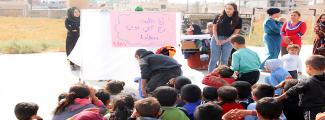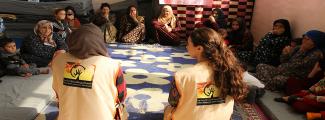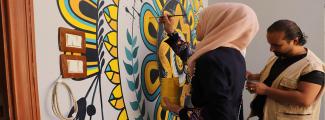Child Protection
Mon, 11/11/2019 - 09:11
Activity: My Positive Aspects – Qamishli, Hassakeh
Thu, 11/07/2019 - 13:08
Activity: Exploration Trip - Banyas
Thu, 11/07/2019 - 12:59
The Conclusion of the Football League - Banias - Tartous
Sun, 11/03/2019 - 08:48
Inauguration of a Child Friendly Space (CFS) – al-Hameh, Rural Damascus
Thu, 10/31/2019 - 13:37
Awareness Session on Child Labour - Banyass
Thu, 10/31/2019 - 09:50









